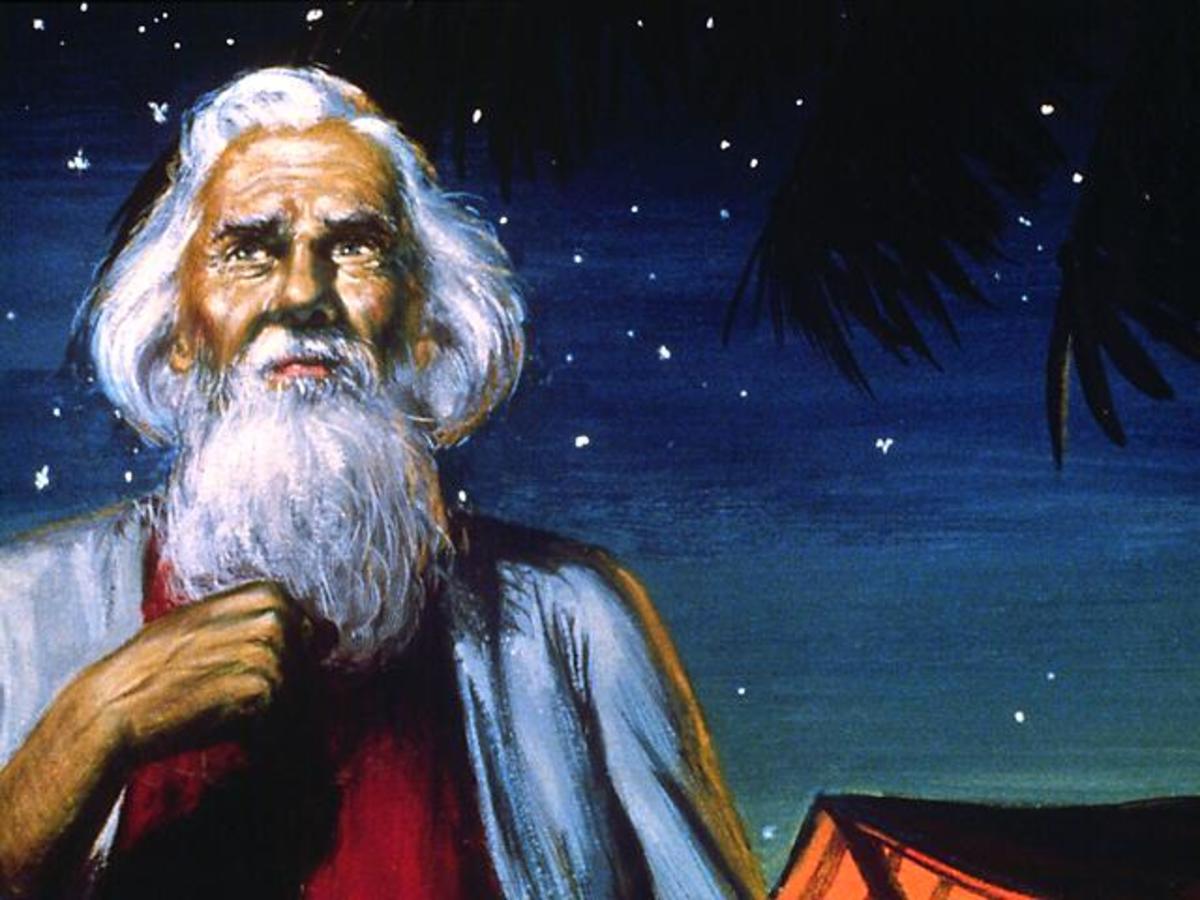Providence, the Father's Benevolent Care

There is the question whether the idea of God intervening or interfering in our world is compatible with the laws of science. We ask: is there room for answers to daily prayer for favours which are not quite miraculous but are somehow beyond the effects that science would predict? In an era when the scientific disciplines have made great strides and increasingly influence thinking and life, is the notion of providence still credible? It is quite true that a certain determinism governs the material world, even if the extent and limitations of this determinism is open to challenge. It is equally true that every human being experiences the workings of chance during his life, fortuitous circumstances, including events that would have been considered mathematically improbable. If so, how do we explain providence in world seen to be governed solely by determinism or chance. Is there a way we could be open to the perception of a higher intervention from the Divine?
EXAMINING PROVIDENCE
The word ‘providence’ translates the Latin “providentia” and the Greek “pronoia”. Providence literally means “foresight”, and when used of God’s means; it refers to the divine care of the world, God’s guidance of history and human affairs towards the achievement of his purpose. However, there are those who claim that Divinity does not exist; others admit that it exists, but that it is inactive, indifferent, and can’t be linked to providence; a third category of people maintains that Divinity exists and providence is the action of the divine, but it pays attention only to important matters, those that concern heavenly phenomena, not those that concern beings that live on the earth; a fourth category affirms that Divinity and providence watches over earthly realities and human realities but only in a general way with no interest in details; however some individuals believes in the entirety of providential care; for them, God attends even to the most minute details.
Providence is not only doubted by those who do not believe in a creator God, for even those who believe in a creator God do not always believe in providence. Some object to the doctrine of providence as being incomparable with the laws of nature. In their view, the Creator is the guarantor of the functioning of the laws of nature which corresponds to his intention in creating the world. Therefore, God cannot intervene in this functioning in order to continually modify it. What would one think of a creator who constantly corrects the mechanisms of his creation as if His work were filled with imperfections or miscalculations? Doesn’t the creator’s involvement in a work in which His perfect wisdom has foreseen everything demand that nature develop according to its intrinsic properties, without being ceaselessly disturbed by interference from on high?
Divine providence too easily placed at the service of human desires and whims will be manipulated by men. A God whose omnipotence was subjected to the most diverse expectations and who went along with everyone’s wishes in governing his universe would lose his transcendence and his authentic sovereignty. The grandeur of God has been seen as incompatible with a providence that determine the smallest details of human existence, as if these details were of supreme importance. God is too great to intervene in the most insignificant matters. He can never lose sight of the hierarchy of values or pursue trivial goals.
This question of providence leaves us trapped, for if we say that God does not intervene in our world, it seems to leave us with an absent God who is unable to help us. It deprive prayers of petition of its meaning, leaving it with some psychological function, such as giving comfort. The other alternative offered is to say that God does intervene to bend the laws of nature. This raises a double difficulty. First, it casts doubt on God’s transcendence for it seems to imply that the action of God is somehow comparable to the action of other forces that are part of our world. Second, it raises a serious difficulty about the notion of laws of nature. ‘Laws’ in this context means predictable regularities in the sphere covered by sciences as Physics, chemistry and biology. A miracle might be understood as a rare exception to such laws, but what is one to make of the belief that God grants a number of favours in answer to our daily prayers of petition? Are such answers to prayer to be seen as interventions by God? If so, are they contravenous of the laws of nature or exceptions of some kind? Would not such frequent interference by God in the order of the world make nonsense of science, which presupposes that we can find a predictable pattern in nature?

THE IDEA OF PROVIDENCE
The idea of providence harmonizes with the idea of Divine Fatherhood: God’s fatherly care for men. This care is motivated not by the love of men toward him but by his own love for them. He has willed to be our father in the most perfect way possible. He knows the hierarchy of values better than we do. His providence is governed by a plan of salvation that seeks the fulfillment of the loftiest spiritual destiny. Yet it neglects no details because by virtue of an immense love, it attaches value to everything that concerns us. It never sacrifices benefits of a superior order for the satisfaction of material needs. Rather, it provides material benefits for the sake of spiritual needs.
The Gospels tell us that providence is the solicitude with which the Father governs the course of events in the universe and in each human life; so don’t worry and say, what will we eat or what will we drink or, what will we put on? For the gentiles seek all these things; your heavenly Father knows you need them (Mt 6:31-32). Jesus present providence as a truth calling for our faith. He challenges those who surrender to anxiety, calling them ‘you of little faith’ (Matt 6:30). Providence can be seen as the vigilance with which He protects each individual and provides for the most mundane needs. It is a manifestation of the immensity of the Father’s love that is concerned with every aspect of our lives.
Providence belongs to the supernatural level of the diffusion of salvation and grace. When I sent you without a purse or bags and sandals you didn’t lack anything, did you? Nothing, they replied’ (Lk 22:35). Jesus had not provided them with everything usually needed for a journey. In sending them out, he had entrusted them to the father’s care and it was clear manifested, allowing the disciples to lack nothing. The love with which the Father watches over Jesus’ disciples by providing for their needs is identically the same love he vowed to all men by treating them as his children in Christ. The solicitude he shows for the most mundane needs of daily life cannot be dissociated from the supremely free benevolence with which he decided to save humankind.
There is the impression that providence is given to those who behave righteously for everything works for the good of those who love God (Rom 8:28). Providence does not limit its solicitude to those who respond to God’s love, it embraces all human beings. The Father grants his blessings to everyone for he himself is kind to the ungrateful and the evil (Lk 6:35). The gift of sunlight and of rain are bestowed on all without exception. This universalism implies a special generosity on the Father’s part for those who act negatively towards him. God responds to their hostility with surprising liberality. His providence lavishes its attention on those who turn their backs on him. No restriction limits the plan to raise the human race up to the level of sonship in Christ. Would not he who rather than spare his own son gave him up for us, also freely give us everything along with his Son? (Rom 8:32). Now that the father’s generosity has attained its loftiest expression, it is lavished without limits and grants everything to those for whom the son was sacrificed.
We have a cut clear answer to the question whether Providence intervenes in the smallest details of human life in the Gospel text “even the hairs of your head are all numbered” (Mt 10:30). One hair more or less is a telling example of a trivial detail. A man cannot be worried over the loss of a single hair. Yet even such a loss does not escape the solicitude of Providence. The Father in his infinite kindness is vigilant even over what seems most insignificant in human existence. In counting hairs He does what men are unable to do. He leaves nothing to play of accidental causes. Nothing is outside the Father’s control.
When Jesus talks about the Father’s care for mundane needs like food and clothing, he shows that the maintenance of human life does not result simply from the forces of nature. A supernatural benevolence presides over it which we are to strive to discover when we contemplate nature. Jesus invites us to discover and admire in birds something besides what we immediately see in them: your heavenly Father feeds them (Mt 6:26). The order of nature is governed by a fatherly activity that pursues a supernatural plan; this activity takes nothing away from the properties of nature, but rather has the effect of enhancing the qualities and beauty of creatures.

PROVIDENCE AND SUFFERING
The strongest observation to the concept of providence relates to the turmoil and countless ills of our world. If God is governing everything with his omnipotence and wisdom, how can we explain turmoil and disorder where perfect order should reign, how can we account for apparently absurd situations and events? It might be said that in the domain of evil and suffering man summons endless accusations against the God of providence and is tempted to deny his existence. There is the question here not only of objections of the intellectual order, but also of cries wrested from painful situations in which man finds it hard to admit the reality of a caring God.
Reconciling providence with the painful ordeals that befall mankind calls for an explanation of the meaning of suffering. Jesus told his disciples that hardships and persecutions would not be lacking in the future for those trials enter into the Father’s benevolent plans. Far from being obstacles to the action of providence, they are part of its unfolding. The notion of providence that should eliminate all the painful aspects of human existence would not coincide with the providence revealed in the Gospels. The purpose of providence is not to provide the most pleasant and convenient life. It is ordered to the fulfilment of the benevolent plan that willed the work of the redemption on behalf of men, it is inevitably committed to the path of sacrifice.
Looking at providence as the continuous giving of good things is like trying to prove that somebody is really my friend by making an analysis of the number of times the friend has performed some favours I asked for. This ignores the fact that a refusal of my request may also be an act of friendship. But more importantly, it misses the central point: that the awareness of friendship has priority over the awareness of receiving favours. In fact, I interpret the actions of the other person as favours precisely because I know that this person is my friend. Many actions could be interpreted in different ways: as favours or as signs of hostility, but I give my friend the benefit of the doubt. On the other hand, if I receive a favour from somebody whom I do not know to be my friend it raises a question for me: is this really an initial act of friendship or am I being manipulated or bribed? God’s providence is real, true and benevolent irrespective of life’s turmoil.

PROVIDENCE, SCIENCE AND CHANCE
Since providence intervenes in the deployment of the forces of nature, it poses the problem of the relationship between science and faith. Is providence still credible? It cannot be for those who limit themselves to an exclusively scientific conception of the universe. Scientific research into the energies of nature does not discern an energy of a different order than those of physico-chemical and biological elements. Providence cannot be grasped scientifically. It can be perceived only through the eyes of faith and accepted by those who believe in the work of salvation in the new creation wrought by Christ. Providence does not abolish the laws of nature, but controls them and directs them with a fatherly intention, to the point that we must consider the hours of everyday as a gift of the Father to His children and not merely the result of meteorological coordinates. The material universe is governed by a loving power that can be perceived only through faith.
If providence intervenes in the smallest facets of life, can we still speak of chance: the convergence of various accidental cause. If chance explained the entire course of events, human life would be subjected to irrational influences and would often appear to be the plaything of favourable or deplorable circumstances. But chance is caught up in the solicitude of providence, so that events are not governed solely by accidental causes but by a benevolent intention that organizes the entire framework of human life for the sake of a superior destiny. Everything that seems to be merely fortuitous or irrational takes on a significance of a higher order. Far from being the plaything of circumstances or of blind forces, human life is guided in all its details by a power that measures and disposes everything in accordance with a benevolent goal.

HUMAN RESPONSE TO PROVIDENCE
The gratuitous solicitude of the Father who wants to deliver men from their anxieties cannot be seen as an invitation to passivity on their part. The intervention of providence in the smallest details should not lead to a slackening of human efforts. Jesus teaches the responsibility of each individual to make the most of his or her talents (Mt 25:14-30). Not only must everyone work to obtain food and clothing, but they must strive to make their faculties and personal resources bear fruit. They can never claim their capacities are so limited that they can be dispensed from the effort to make use of them. The servant who received only one talent and did not use it productively is severely reprimanded by the master (Mt 25:26-28). While human beings are expected to work and use their resources wisely, they are invited to place their trust in providence for their needs for it requires the favourable interplay of circumstances under the Father’s guidance (Ps 127: 2). It is the Father who has the ultimate responsibility for the material as well as the spiritual life of his children.
The sense of providence may begin with an awareness of God’s care for me personally; but it does not end there for otherwise religious conversion and personal religion would be reduced to a purely private affair between God and myself. I see the hand of God not merely in my own life but also in the lives of others. I can be led on to believe that God’s plan of salvation is all-embracing, it touches the lives of nations as well as individuals. My trials, my rescue, my being led into a more authentic pattern of living, my whole destiny; all these are fitted by God into the destiny of all peoples. The Old Testament constantly keeps this perspective before us, for instance, God’s care for Judith and for Cyrus is an integral part of his saving plan for his people (Jud 9:5-14; Is 45:1-6). Even Joseph comforted his brothers by acknowledging God’s hands in his ordeal (Gen 45:5).
In somewhat the same way, my belief in the love, the care, the providence of God is in some sense prior to the receiving of any particular favours from God. I know, of course that many people have come to believe in God’s care for them as a result of some dramatic answer to prayer. But no matter how one may have come to believe in providence, once that faith is there, it is not dependent here and now on receiving the answer ‘yes’ to all one’s request. On the contrary, it is my belief in providence that enables me to interpret each event that takes place as an instance of God’s care and an answer to my expressed or unspoken petition. We firmly believe that God is master of the world and of its history. But his ways of his providence are often unknown to us. Only at the end when our partial knowledge ceases, when we see God ‘face to face’ will we fully know the ways by which God has guided his creation.









